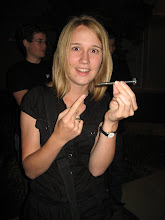...Bear with me here, this might be a little bit obscure or something.
In "The Great Divorce" (TGD for short) the whole thing is a story in Purgatory. Sort of. It's a dream world type thing, where the main character is in Hell but gets a chance to go visit heaven and change his mind about the world, God, and being saved.
The best quotes are "ye cannot fully understand the relations of choice and time until you're beyond both."
"were these arguments only mimicry of Choices that had really been made long ago?"
"without the choice there could be no hell."
However, it was interesting that all these choices happened after Death. I believe that is allegorical. For example:
Hebrews 9:27 : As it is appointed unto men once to die, but after this, the judgment.
And then...the really confusing one...
Revelations 20:12 And I saw the dead, great and small, standing before the throne, and books were opened. Another book was opened, which is the book of life. The dead were judged according to what they had done as recorded in the books.
What? This says it is by works that men are saved!
Then:
Job 8:3 Doth God pervert judgment? or does the Almighty pervert justice?
I'm confused now.
Subscribe to:
Post Comments (Atom)

1 comment:
It is a fearful thing to be judged according to one's deeds, and we have no standing apart from the atoning sacrifice of Christ's own blood, since God's righteous standard is nothing other than perfection. Upon acceptance of this payment, as a gift, we have our names written in the book of life (c. John 10:28, et al) never to be removed or lost. We are not judged according to our deeds, but according to Christ's righteousness. The wicked are judged according to their own works, so they bear their own guilt having not been washed, sanctified, and justified in the name of our Lord Jesus Christ (1 Cor. 6:9-11).
Post a Comment